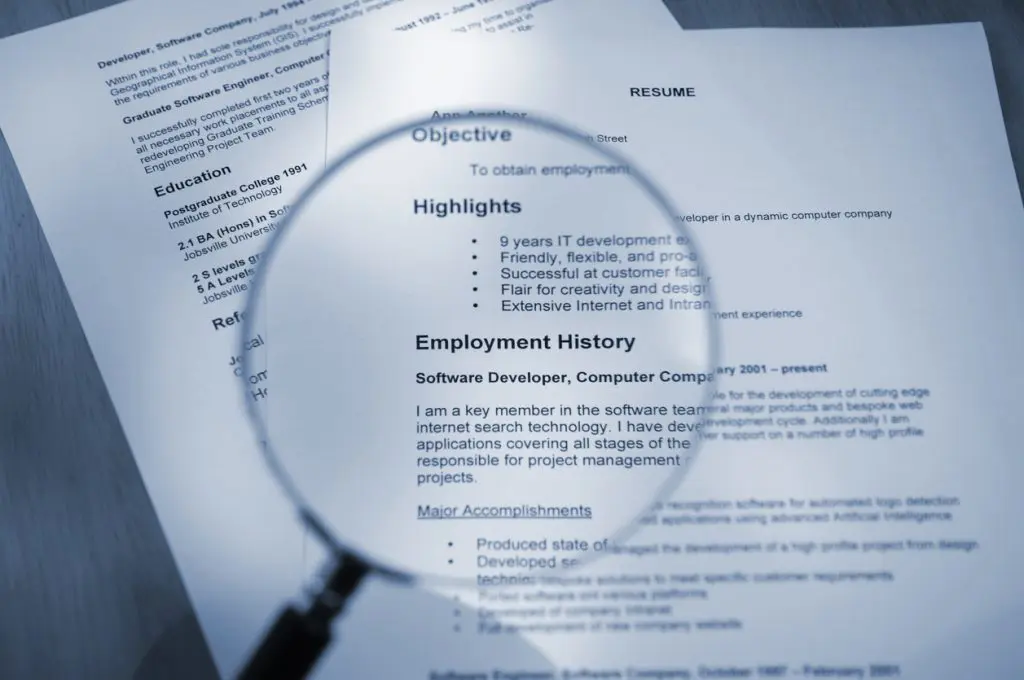Embarking on a job search can feel like embarking on a journey—a journey that requires preparation, strategy, and resilience. In today’s competitive landscape, where employers seek not just qualifications but also a cultural and professional fit, navigating this journey effectively is more crucial than ever. This guide is crafted to empower you with the essential strategies needed to navigate the complexities of finding a job in the United States successfully.
Understanding the dynamics of the job market is the first step. Industries are constantly evolving, and the skills in demand today might differ tomorrow. By staying informed about industry trends and employer expectations, you can position yourself as a proactive and attractive candidate. Throughout this guide, we will explore proven techniques such as self-assessment, networking, resume crafting, interview preparation, and negotiation skills. Each section will provide practical insights and considerations, enabling you to approach your job search with confidence and competence. Whether you’re a recent graduate, transitioning careers, or aiming for advancement, mastering these strategies will equip you to pursue your career goals effectively in today’s competitive job market.

Understanding Yourself
Before diving into the job market, it’s crucial to have a clear understanding of yourself—your skills, interests, and values. Start by conducting a thorough self-assessment to identify your strengths and areas for development. Reflect on your professional skills, such as technical expertise, problem-solving abilities, and leadership qualities. Consider your personal interests and passions, as aligning these with your career goals can lead to greater job satisfaction. Moreover, understanding your values—what matters most to you in a work environment, such as work-life balance, organizational culture, or social impact—will help you target companies that align with your principles.
Utilize various self-assessment tools and exercises to gain deeper insights into your abilities and preferences. These tools can include career assessments, personality tests, and skills inventories, which provide structured ways to evaluate your strengths and interests. However, remember that while these tools offer valuable insights, they are just one part of the self-discovery process. Your own introspection and reflections on past experiences also play a critical role in shaping your career path.
By taking the time to understand yourself thoroughly, you can present a coherent and compelling personal brand to potential employers. This clarity not only enhances your confidence during interviews but also enables you to make informed decisions about job opportunities that align with your professional aspirations and personal values.
Self-assessment: Skills, Interests, Values
Self-assessment is the foundation of a successful job search. Start by identifying your key skills—both technical and soft—as they relate to your desired roles. Consider your interests and passions to align your career path with what excites you. Lastly, clarify your values to seek workplaces that resonate with your beliefs and priorities. This introspective process will guide you towards opportunities where you can thrive professionally and personally.
Crafting a Personal Brand
Crafting a personal brand involves presenting a clear and consistent image of yourself to potential employers. This includes defining your unique strengths, experiences, and values that set you apart from other candidates. Develop a compelling narrative that showcases your skills and achievements, both online (e.g., LinkedIn profile) and offline (elevator pitch). A strong personal brand enhances your credibility and helps employers understand what makes you the right fit for their team.
Pros and Cons of Self-assessment Tools
Pros:
- Clarity: Helps clarify your strengths, weaknesses, and areas for improvement.
- Structured Approach: Provides a structured framework for evaluating skills and interests.
- Guidance: Offers guidance in aligning your career goals with your personal interests and values.
- Efficiency: Saves time by focusing your job search on roles that match your profile.
- Self-awareness: Promotes self-awareness and enhances interview preparedness.
Cons:
- Limitations: Some tools may oversimplify complex career decisions.
- Subjectivity: Results can be influenced by personal biases or interpretation.
- Cost: Certain assessments may incur fees for comprehensive results.
- Inaccuracy: Results may not always accurately reflect real-world job performance.
- Dependence: Over-reliance on tools may overshadow personal introspection and experience.
Researching the Job Market
Before embarking on your job search journey, it’s essential to conduct thorough research on the current job market landscape. Begin by identifying industries and sectors that align with your skills, interests, and career aspirations. Look into trends such as growing industries, emerging job roles, and areas experiencing high demand for talent. Websites like the Bureau of Labor Statistics (BLS) and industry-specific publications can provide valuable insights into employment projections and sector-specific information.
Next, delve into researching potential employers. Identify companies that resonate with your values and offer opportunities aligned with your career goals. Explore company websites, LinkedIn profiles, and professional networks to gather information about their culture, recent developments, and job openings. Networking with current employees or alumni from your college can also provide insider perspectives on company culture and hiring practices.
By arming yourself with comprehensive knowledge about the job market and specific employers, you can tailor your job search strategy effectively. This proactive approach not only increases your chances of finding suitable opportunities but also positions you as a well-informed and engaged candidate during networking events and interviews.
Identifying Industries and Sectors of Interest
Identifying industries and sectors of interest involves assessing your skills and passions to align with thriving areas of the economy. Research industries experiencing growth, such as technology, healthcare, and renewable energy, to target opportunities that match your career goals. Consider factors like job stability, advancement opportunities, and alignment with your values to narrow down your focus.
Researching Companies
Researching companies is crucial for understanding their culture, values, and opportunities they offer. Visit their websites to explore their mission statements, recent news, and job openings. Utilize platforms like LinkedIn to learn about their employees, company updates, and potential contacts for networking. This research helps tailor your application and prepares you for interviews by demonstrating your interest and fit with the company’s goals.
Utilizing Job Market Statistics
- Industry Insights: Understanding job market statistics can reveal which industries are growing and which are contracting, guiding your career decisions.
- Salary Data: Accessing salary statistics helps you negotiate competitive compensation packages based on industry standards.
- Employment Trends: Analyzing employment trends can highlight areas of high demand for specific skills, helping you focus your job search efforts effectively.
- Geographic Analysis: Job market statistics provide insights into regional job opportunities and economic conditions, assisting you in targeting locations with thriving job markets.
Networking

Networking is a powerful tool in the job search process, allowing you to connect with professionals who can provide insights, referrals, and opportunities. Start by building a strong LinkedIn profile that highlights your skills, experiences, and career goals. Join industry-specific groups and engage in discussions to expand your network organically. Attend networking events, career fairs, and conferences to meet professionals in your field and build meaningful relationships.
Effective networking is not just about making contacts but also about nurturing relationships. Reach out to alumni from your college, former colleagues, and friends for informational interviews or coffee meetings. These interactions can offer valuable advice, industry insights, and potential job leads. Remember to approach networking with a genuine interest in learning from others and offering your own expertise in return.
By actively networking, you can uncover hidden job opportunities and gain referrals that may not be advertised publicly. Networking also allows you to stay updated on industry trends and positions you as a proactive candidate in the eyes of employers. Building and maintaining a professional network is a long-term investment in your career success, providing ongoing support and opportunities throughout your professional journey.
- Building and leveraging your network
- Online networking (LinkedIn, social media)
Networking events and strategies:
- Attend Industry Conferences: Participate in conferences related to your field to meet professionals and learn about current trends.
- Career Fairs: Attend career fairs hosted by universities, industry associations, or job boards to connect with recruiters and explore job opportunities.
- Professional Associations: Join industry-specific associations and attend their events to network with peers and stay updated on industry developments.
- Informational Interviews: Request informational interviews with professionals in your desired field to gain insights and expand your network.
- Online Networking: Engage in LinkedIn groups, webinars, and virtual networking events to connect with professionals across geographical boundaries.
- Follow-Up: After networking events, follow up with contacts via LinkedIn or email to express gratitude and maintain relationships.
Job Search Strategies
When embarking on your job search journey, it’s essential to adopt a diversified approach to maximize your chances of success. Start by utilizing online job boards and aggregators such as Indeed, LinkedIn Jobs, and Glassdoor to explore a wide range of job openings. These platforms allow you to filter by industry, location, and job type, making it easier to target positions that match your skills and interests. Additionally, regularly visiting company websites directly can uncover opportunities that may not be advertised elsewhere.
Networking is another crucial strategy that can significantly enhance your job search efforts. Leverage your professional network and connections to learn about hidden job openings and receive referrals. Networking also allows you to gather insider information about companies and industries, improving your chances of landing interviews. Lastly, consider partnering with recruitment agencies and headhunters who specialize in your industry. These professionals can provide valuable guidance, connect you with relevant job opportunities, and help tailor your application materials to stand out to employers.
By combining these strategies—online job boards, networking, and recruitment agencies—you create a comprehensive approach that maximizes your exposure to potential employers and positions you as a proactive and engaged candidate in the competitive job market. Adapt your tactics based on industry trends and feedback, staying persistent and flexible to achieve your career goals.
Online Job Boards and Aggregators
Online job boards and aggregators like Indeed, LinkedIn Jobs, and Glassdoor offer a vast array of job listings across various industries and locations. These platforms allow you to search and apply for jobs conveniently from your computer or mobile device. Use filters to refine your search by job title, location, salary range, and company size to find positions that align with your skills and career goals. Regularly checking these sites ensures you stay updated on new job postings and increases your chances of discovering relevant opportunities in your desired field.
Company Websites and Direct Applications
Visiting company websites directly is a strategic approach to uncovering job opportunities that may not be advertised elsewhere. Many companies post openings exclusively on their own websites before listing them on job boards. By regularly checking the careers section of companies you’re interested in, you can stay ahead of the competition and apply early. Direct applications also demonstrate your initiative and interest in specific organizations, increasing your chances of getting noticed by hiring managers who value proactive candidates. Tailor your resume and cover letter to each company’s culture and job requirements to make a strong impression and enhance your candidacy.
Recruitment Agencies and Headhunters
Recruitment agencies and headhunters specialize in connecting candidates with job opportunities that match their skills and career goals. These professionals often have access to exclusive job openings and can provide valuable insights into industry trends and hiring practices. By partnering with a reputable agency or headhunter, you can streamline your job search process and gain access to positions that may not be advertised publicly. They also offer personalized guidance on resume writing, interview preparation, and negotiating job offers, optimizing your chances of securing a desirable position.
Resume and Cover Letter Writing

Crafting an effective resume and cover letter is essential to making a strong first impression on potential employers. Start with your resume, ensuring it highlights your relevant skills, experiences, and accomplishments. Tailor each resume to the specific job you’re applying for by emphasizing skills and achievements that align with the job description. Use bullet points for clarity and include quantifiable results whenever possible to showcase your impact in previous roles. Additionally, keep your resume concise and well-organized, ideally fitting onto one page unless you have extensive experience.
Your cover letter complements your resume by allowing you to expand on key points and demonstrate your enthusiasm for the position and company. Customize each cover letter to reflect your understanding of the company’s values and how your skills make you a perfect fit for the role. Use a professional tone, address the hiring manager by name if possible, and highlight specific achievements or experiences that illustrate your qualifications. Proofread both documents carefully to ensure they are free of errors and effectively communicate your strengths and motivations to prospective employers. Taking the time to craft compelling application materials will significantly increase your chances of securing interviews and advancing in the hiring process.
- Crafting an effective resume
- Writing a compelling cover letter
- Tailoring applications to specific jobs
Interview Preparation
Preparing thoroughly for interviews is key to presenting yourself as a confident and qualified candidate. Start by researching the company and understanding its culture, values, and recent achievements. This knowledge will enable you to tailor your answers to demonstrate how your skills and experience align with the organization’s goals. Practice answering common interview questions, such as behavioral and situational inquiries, using the STAR method (Situation, Task, Action, Result) to structure your responses effectively.
Additionally, prepare questions to ask the interviewer that demonstrate your interest in the role and company. Practice your interview etiquette, including dressing appropriately, arriving on time, and maintaining professional demeanor throughout. Conduct mock interviews with friends, family, or career advisors to receive feedback and refine your responses. Finally, follow up with a thank-you email expressing your gratitude for the opportunity and reaffirming your interest in the position. Effective interview preparation not only boosts your confidence but also positions you as a prepared and enthusiastic candidate, increasing your chances of securing the job offer.
Preparing for Different Types of Interviews
- Behavioral Interviews: Practice using the STAR method (Situation, Task, Action, Result) to structure your responses to questions about past experiences and behaviors.
- Technical Interviews: Review technical skills relevant to the job and be prepared to solve problems or demonstrate your proficiency through practical exercises.
- Case Interviews: Familiarize yourself with case study frameworks and practice solving business problems under pressure, focusing on logical reasoning and problem-solving skills.
- Panel Interviews: Research each interviewer’s role and background, prepare to engage with multiple interviewers, and maintain eye contact and equal attention to all panel members.
- Virtual Interviews: Test your technology beforehand, choose a quiet and well-lit space, dress professionally, and maintain eye contact with the camera while speaking.
- Group Interviews: Showcase your teamwork and communication skills by actively participating while also allowing others to contribute, demonstrating collaboration.
Practicing Common Interview Questions
- Behavioral Questions: Practice answering questions that ask about past experiences using the STAR method (Situation, Task, Action, Result) to structure your responses.
- Strengths and Weaknesses: Prepare to discuss your strengths with examples that demonstrate their application in a work setting. Address weaknesses by showing awareness and steps taken to improve.
- Why This Company/Role: Research the company and align your skills and interests with its mission and goals to articulate a compelling reason for wanting to work there.
- Teamwork and Leadership: Be ready to discuss instances where you worked collaboratively in a team and times when you took initiative or led a project.
- Problem-Solving: Practice answering questions that assess your problem-solving abilities, demonstrating your approach to analyzing situations and finding solutions.
- Career Goals: Outline your short-term and long-term career goals, connecting them to the position and company you’re applying for to show alignment and commitment.
Researching the Company and Interviewer
Researching the company and interviewer before your interview demonstrates your interest and preparedness. Visit the company’s website to understand its mission, values, recent achievements, and company culture. Look up the interviewer on LinkedIn to learn about their background, professional experience, and any mutual connections. This information will help you tailor your responses and questions during the interview, showcasing your enthusiasm and alignment with the organization.
Following Up and Negotiation
Following up after an interview is a crucial step in maintaining communication with potential employers and reaffirming your interest in the position. Send a thank-you email within 24 hours expressing gratitude for the opportunity to interview and briefly reiterating your enthusiasm for the role. Personalize the message by mentioning specific points discussed during the interview and expressing your readiness to contribute to the company’s success. This gesture not only demonstrates professionalism but also keeps you top of mind as hiring decisions are made.
When negotiating a job offer, research industry standards and the company’s compensation practices to inform your discussions. Clearly articulate your value based on your skills, experience, and the contributions you can make to the organization. Be prepared to negotiate on aspects such as salary, benefits, remote work options, and start date. Approach negotiations with a collaborative mindset, aiming for a win-win outcome where both parties feel satisfied with the final agreement. Throughout the process, maintain open communication and professionalism to leave a positive impression on your potential employer.
- Sending thank-you notes and follow-up emails
- Handling job offers and negotiations
Conclusion
Navigating the job market requires dedication, strategy, and continuous learning. By implementing the strategies outlined in this guide—starting from understanding yourself through self-assessment to networking effectively and mastering the interview process—you can significantly enhance your chances of securing your desired position.
Remember, each step in the job search process plays a crucial role in building your professional brand and demonstrating your value to potential employers.






